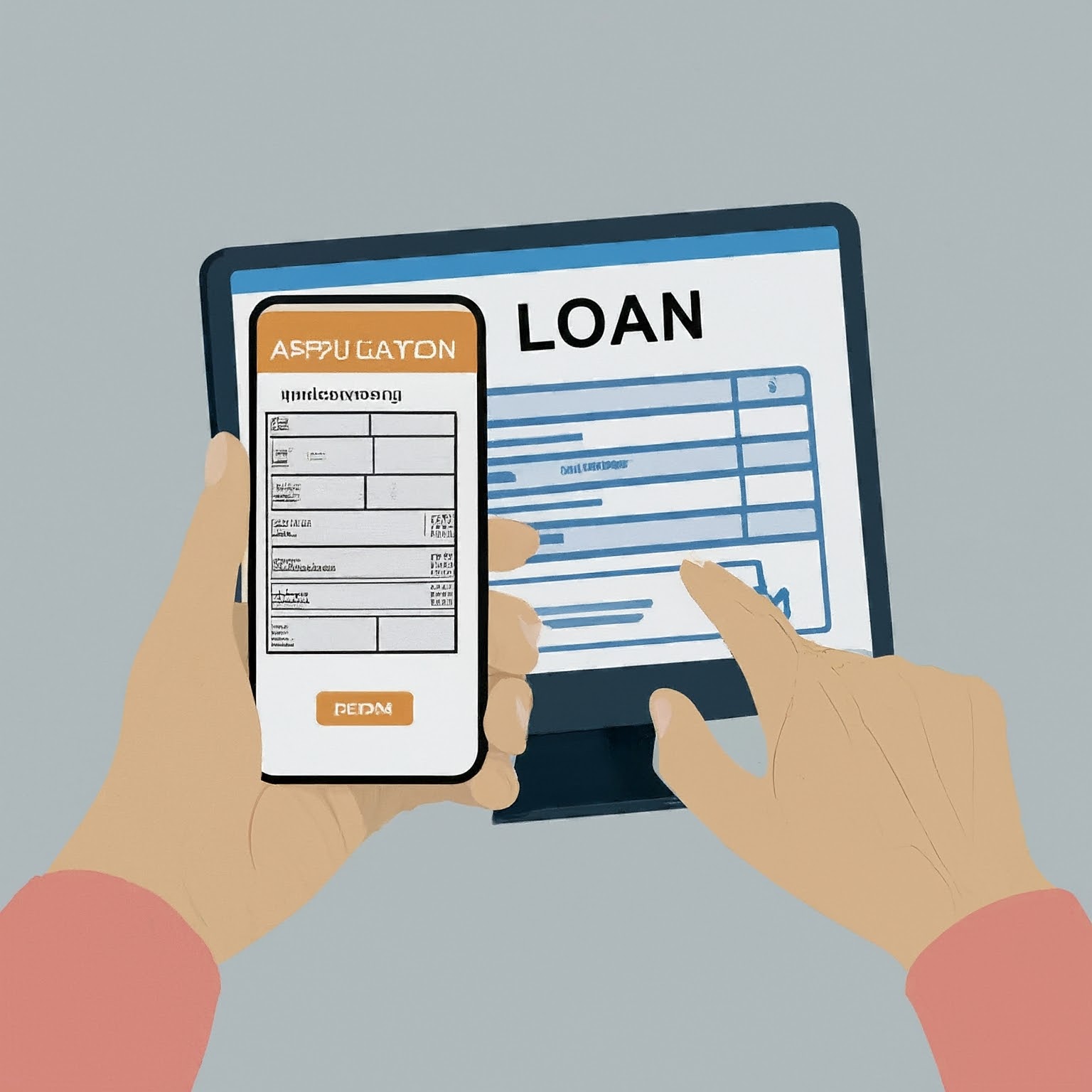Vehicle Loan
Fast Vehicle Loans in Just 24 Hours with Skara Financial Services!
Looking to hit the road fast? Skara Financial Services offers vehicle loans with approval in just 24 hours! Whether you’re eyeing a new car, a used vehicle, or even a two-wheeler, our fast-track loan process ensures that you get the keys to your vehicle quickly and hassle-free.
Why Choose Skara?
- Quick Approval: Secure your loan in as little as 24 hours!
- Competitive Interest Rates: Access low-interest rates from top lenders.
- Flexible Repayment Plans: Choose terms that fit your financial needs.
- Wide Loan Options: Get loans for new, used, or electric vehicles.
Apply now for a fast vehicle loan and drive away in your dream vehicle with Skara Financial Services!
Skara Financial Services
Vehicle Loan: A Complete Guide
Introduction
Vehicle loans, often called auto or car loans, are an essential financial product for those looking to purchase a vehicle but cannot afford to pay the entire amount upfront. This article will serve as a detailed guide covering all aspects of vehicle loans, helping you make informed decisions whether you are buying a new or used car.
What Is a Vehicle Loan?
A vehicle loan is a type of personal loan where the borrower uses the loan amount specifically to purchase a vehicle. The lender provides the funds to purchase the car, and the borrower repays the amount along with interest in monthly installments over a predetermined period.
Key Features of a Vehicle Loan
- Loan amount based on the value of the vehicle.
- Repayment tenure typically ranges from 12 months to 84 months.
- Interest rates can be fixed or variable.
- The vehicle itself acts as collateral.
- In case of default, the lender can repossess the vehicle.
Types of Vehicle Loans
Understanding the types of vehicle loans available can help you choose the best option based on your financial situation and the type of vehicle you plan to buy. Below are the most common types of vehicle loans:
A. New Car Loans
These are loans specifically for the purchase of new vehicles. Interest rates on new car loans tend to be lower than used car loans, as new cars have a higher resale value.
B. Used Car Loans
Used car loans cater to buyers purchasing pre-owned vehicles. Since the resale value of used cars is lower than new cars, lenders typically charge higher interest rates to cover the risk.
C. Lease Buyout Loans
This type of loan is ideal for individuals leasing a car and wanting to buy it at the end of the lease term. A lease buyout loan helps you finance the purchase of the car you’ve been driving during the lease period.
D. Refinancing Vehicle Loans
Vehicle loan refinancing is when a borrower takes out a new loan to pay off the existing loan, often with better terms such as lower interest rates or extended repayment terms.
E. Loan for Commercial Vehicles
Loans specifically designed for purchasing commercial vehicles such as trucks, vans, or buses. These loans typically have different terms and eligibility criteria than personal vehicle loans.
Key Terms in a Vehicle Loan
Before diving into the loan application process, it is crucial to understand the key terms associated with vehicle loans:
- Principal Amount: The amount you borrow to purchase the vehicle.
- Interest Rate: The percentage of the principal amount charged by the lender.
- Annual Percentage Rate (APR): The total yearly cost of borrowing, including interest and fees.
- Loan Tenure: The time period over which the loan is to be repaid.
- Down Payment: The upfront payment made by the borrower towards the vehicle’s price.
- EMI (Equated Monthly Installment): The fixed monthly payment that includes both principal and interest.
How Vehicle Loan Interest Rates Work
The interest rate on a vehicle loan significantly affects the total cost of the loan. Understanding how interest rates work is essential in choosing the right loan.
A. Fixed vs. Variable Interest Rates
- Fixed Interest Rates: The rate remains constant throughout the loan term.
- Variable Interest Rates: The rate may fluctuate based on the market conditions.
B. Factors Affecting Interest Rates
- Credit Score: Borrowers with a higher credit score usually qualify for lower interest rates.
- Loan Tenure: Longer loan tenures may result in higher interest rates.
- Loan-to-Value (LTV) Ratio: The LTV ratio is the percentage of the car’s value that is financed by the loan. A higher LTV ratio could mean a higher interest rate.
- Vehicle Type: New vehicles often come with lower interest rates compared to used vehicles.
Vehicle Loan Calculator: A Handy Tool
A vehicle loan calculator is a useful tool to estimate the EMI and the total cost of your loan. It requires inputs such as loan amount, interest rate, and tenure. Using a loan calculator before applying can give you a clear understanding of how much you can afford and what to expect in terms of monthly payments.
Monthly EMI: ₹ 10,746.95
Total Amount Payable: ₹ 6,44,817.01 (Principal + interest)
Principal Amount: ₹ 5,00,000
Total Interest Payable: ₹ 1,44,817.01
Eligibility Criteria for Vehicle Loans
While eligibility criteria may vary between lenders, there are common factors that influence whether a loan is approved:
- Age: Typically, borrowers should be between 18 and 65 years old.
- Income: Lenders look for a stable source of income to ensure the borrower can repay the loan.
- Credit Score: A credit score of 700 or higher is generally considered ideal, though loans are available for borrowers with lower scores.
- Employment Stability: Lenders may require borrowers to have at least one year of continuous employment.
- Vehicle Age: For used car loans, the age of the vehicle is crucial. Lenders often prefer vehicles less than 5-7 years old.
How to Apply for a Vehicle Loan
The process of applying for a vehicle loan involves several key steps. Below is a step-by-step guide:
A. Determine Your Budget
Before applying for a loan, assess how much you can afford in terms of both down payment and monthly installments. Use an EMI calculator to estimate potential monthly payments based on different loan amounts and interest rates.
B. Check Your Credit Score
Lenders heavily rely on credit scores when deciding loan approval and setting interest rates. It’s important to check your credit score before applying to see where you stand.
C. Compare Lenders
Not all lenders offer the same terms. Compare interest rates, fees, and repayment terms from different lenders, including banks, credit unions, and online lenders.
D. Prepare Documentation
Common documents required for a vehicle loan application include:
- Proof of identity (driver’s license, passport, etc.).
- Proof of income (pay stubs, tax returns, etc.).
- Proof of address.
- Bank statements.
- Credit report.
E. Submit the Application
After comparing offers and gathering the necessary documents, you can submit your application online or at the lender’s office. Be sure to review the loan terms and conditions carefully before signing.
Understanding Loan Approval and Rejection
After submitting your loan application, the lender will review several factors to approve or deny your request. Below are common reasons for approval and rejection:
A. Loan Approval Factors
- Good credit score.
- Stable income and employment history.
- Low debt-to-income ratio.
- Sufficient down payment.
B. Loan Rejection Factors
- Poor credit history or a credit score below the lender’s threshold.
- Insufficient income.
- High debt-to-income ratio.
- Incomplete or incorrect documentation.
Common Mistakes to Avoid When Applying for a Vehicle Loan
When applying for a vehicle loan, many borrowers make mistakes that can lead to unfavorable loan terms or even rejection. Here are common pitfalls to avoid:
- Not Shopping Around: Failing to compare loan offers from different lenders can lead to higher interest rates and less favorable terms.
- Ignoring Credit Reports: Not reviewing your credit report before applying can result in unexpected rejections or higher interest rates.
- Choosing the Longest Loan Term: While longer terms reduce monthly payments, they increase the total cost of the loan.
- Not Making a Down Payment: Avoid zero-down payment loans, as they increase the loan amount and interest costs.
Refinancing a Vehicle Loan
Loan refinancing can be an attractive option if you want to lower your monthly payments or reduce your interest rate. Here’s a quick overview of how vehicle loan refinancing works:
- When to Refinance: Consider refinancing when interest rates have dropped, your credit score has improved, or you want to lower monthly payments.
- How to Refinance: Apply for a new loan with better terms to pay off the original loan. Make sure to calculate the costs associated with refinancing, such as prepayment penalties.
- Benefits of Refinancing: Lower interest rates, reduced monthly payments, and shorter loan tenure are common benefits.
Loan Prepayment: Is It a Good Idea?
Prepaying your loan can save you money on interest payments, but it’s essential to understand the terms and conditions regarding prepayment.
- Advantages: Saves on interest costs, reduces loan tenure, and improves your credit score.
- Disadvantages: Some lenders charge prepayment penalties, which can offset the benefits of paying off the loan early.
Conclusion
Understanding the ins and outs of vehicle loans can save you money and ensure you make the best financial decision for your situation. Whether you’re buying a new car, refinancing an existing loan, or looking to improve your credit score, the tips and guidelines provided in this article should give you the knowledge to navigate the vehicle loan process confidently.
FAQs on Vehicle Loans
Q1. Can I get a vehicle loan with a bad credit score?
Q2. How much down payment is required for a vehicle loan?
Q3. Can I negotiate the interest rate on a vehicle loan?
Q4. What happens if I default on my vehicle loan?
Get an Instant Vehicle Loan with Skara Financial Services!
Ready to drive your dream car? Skara Financial Services offers instant vehicle loans with quick approvals and flexible terms. Whether you’re buying a new car, a used vehicle, or even a two-wheeler, we’ve got you covered!
Why Choose Skara?
- Instant Approval: Get your loan approved in minutes, not days.
- Competitive Interest Rates: Access low-interest rates from top lenders.
- Flexible Repayment Plans: Choose loan terms that suit your budget.
Get behind the wheel faster—apply for an instant vehicle loan today with Skara Financial Services!


Vehicle loan interest rates in India with Skara Financial Services
The current vehicle loan interest rates in India vary by bank and the type of loan you choose.
SBI:
- New Car Loans: 9.15% – 10.10%
- Certified Pre-owned Car Loans: 11.70% – 15.20%
- Electric Car Loans: 9.05% – 9.75%
- Two-Wheeler Loans: 13.30% – 14.80%.
Axis Bank:
- Interest rates range from 9.15% to 13.80%.
Bank of Baroda:
- 8.70% – 11.10%.
Rates can vary depending on your credit score and the loan tenure, with better scores usually attracting lower rates. Be sure to compare offers from multiple banks to find the best rate for your needs.
Get started today
Skara Financial Services makes it simple! Whether you need funds for an emergency, a big purchase, or debt consolidation, we’re here to help.
